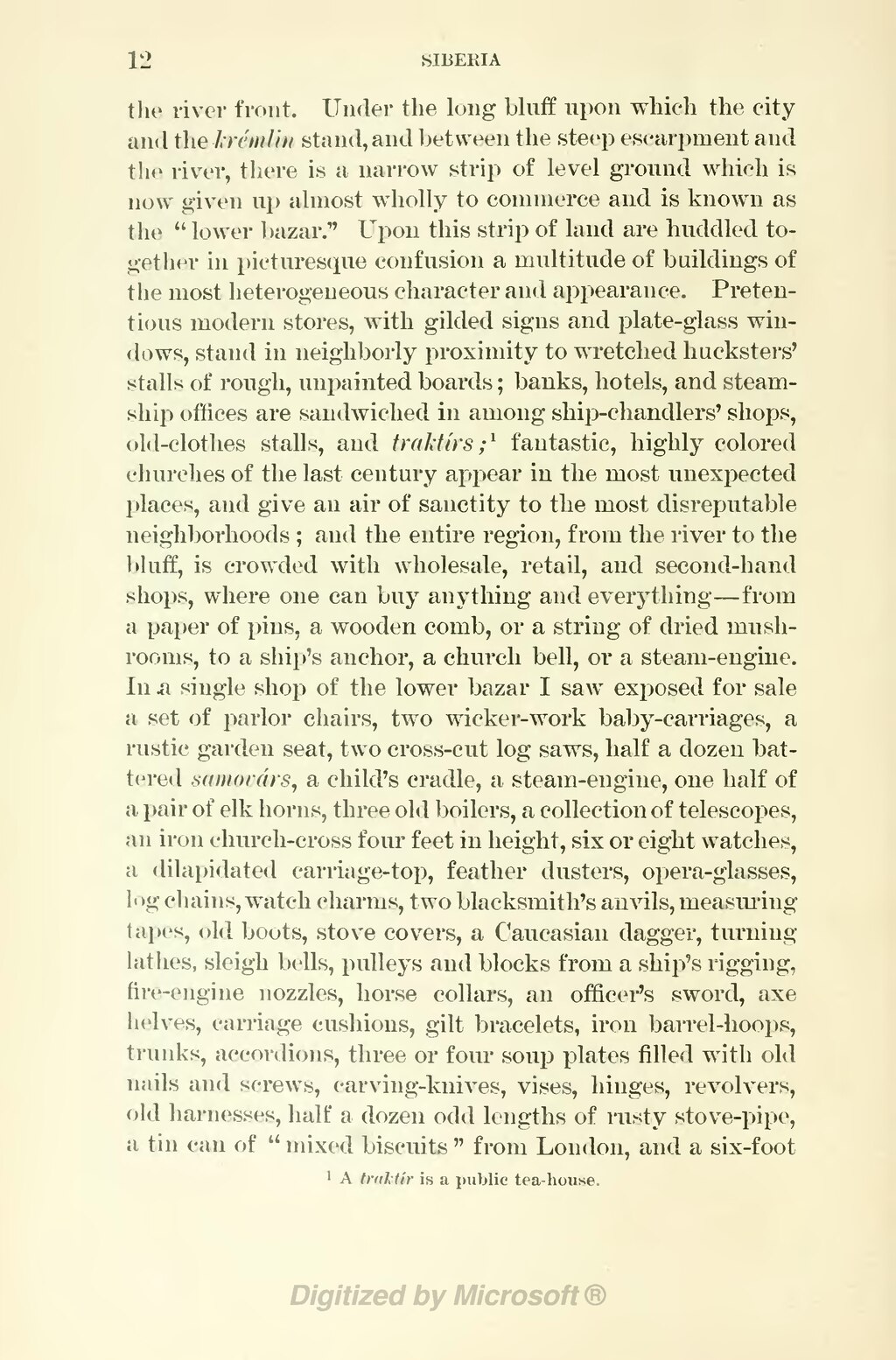the river front. Under the long bluff upon which the city and the krémlin stand, and between the steep escarpment and the river, there is a narrow strip of level ground which is now given up almost wholly to commerce and is known as the "lower bazar." Upon this strip of land are huddled together in picturesque confusion a multitude of buildings of the most heterogeneous character and appearance. Pretentious modern stores, with gilded signs and plate-glass windows, stand in neighborly proximity to wretched hucksters' stalls of rough, unpainted boards; banks, hotels, and steamship offices are sandwiched in among ship-chandlers' shops, old-clothes stalls, and traktírs;[1] fantastic, highly colored churches of the last century appear in the most unexpected places, and give an air of sanctity to the most disreputable neighborhoods; and the entire region, from the river to the bluff, is crowded with wholesale, retail, and second-hand shops, where one can buy anything and everything—from a paper of pins, a wooden comb, or a string of dried mushrooms, to a ship's anchor, a church bell, or a steam-engine. In a single shop of the lower bazar I saw exposed for sale a set of parlor chairs, two wicker-work baby-carriages, a rustic garden seat, two cross-cut log saws, half a dozen battered samovárs, a child's cradle, a steam-engine, one half of a pair of elk horns, three old boilers, a collection of telescopes, an iron church-cross four feet in height, six or eight watches, a dilapidated carriage-top, feather dusters, opera-glasses, log chains, watch charms, two blacksmith's anvils, measuring tapes, old boots, stove covers, a Caucasian dagger, turning lathes, sleigh bells, pulleys and blocks from a ship's rigging, fire-engine nozzles, horse collars, an officer's sword, axe helves, carriage cushions, gilt bracelets, iron barrel-hoops, trunks, accordions, three or four soup plates filled with old nails and screws, carving-knives, vises, hinges, revolvers, old harnesses, half a dozen odd lengths of rusty stove-pipe, a tin can of "mixed biscuits" from London, and a six-foot
- ↑ A traktír is a public tea-house.

